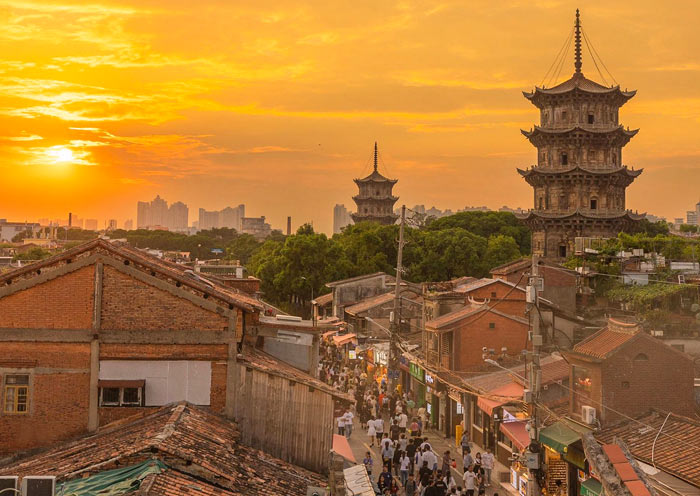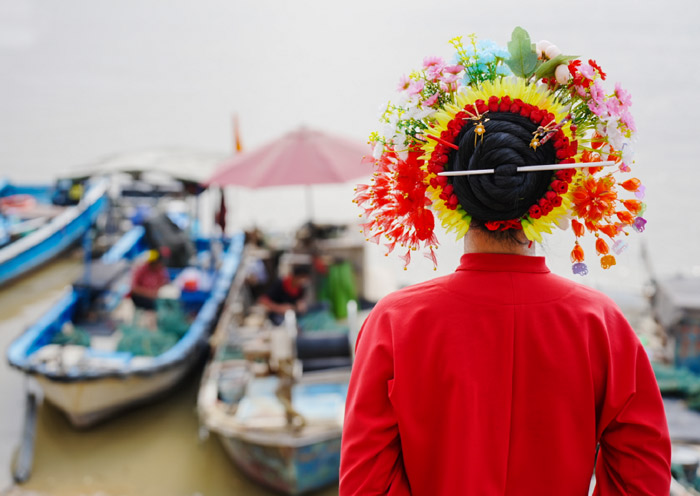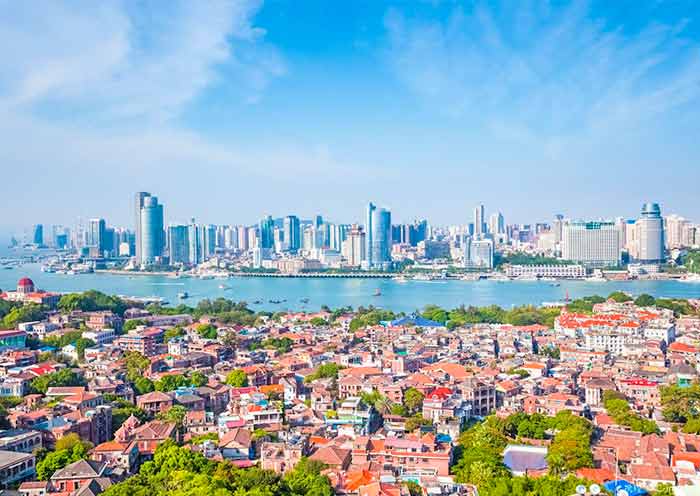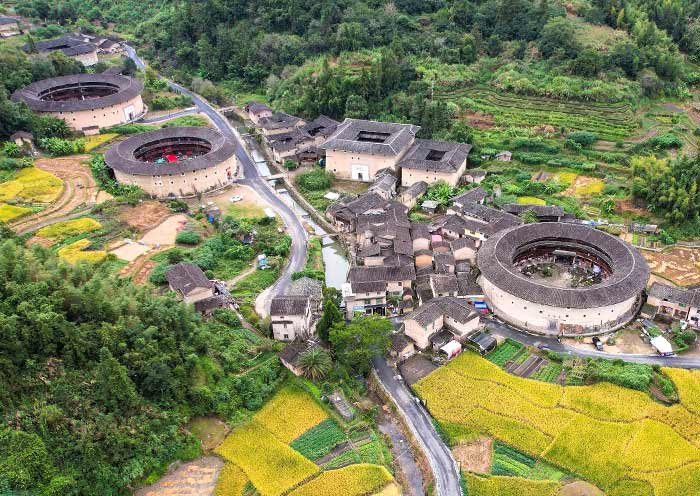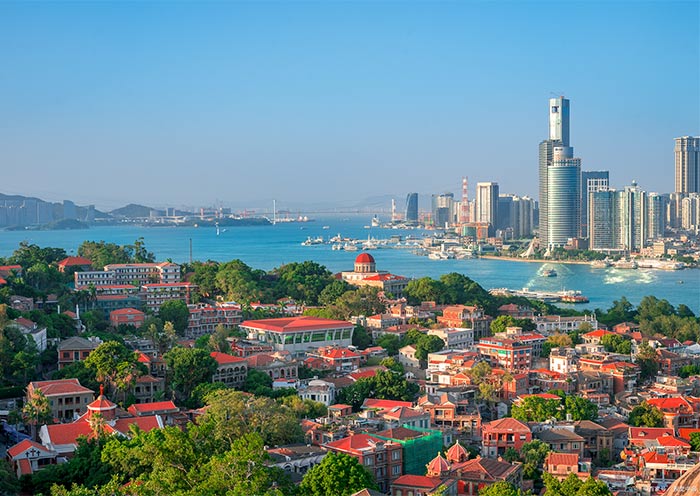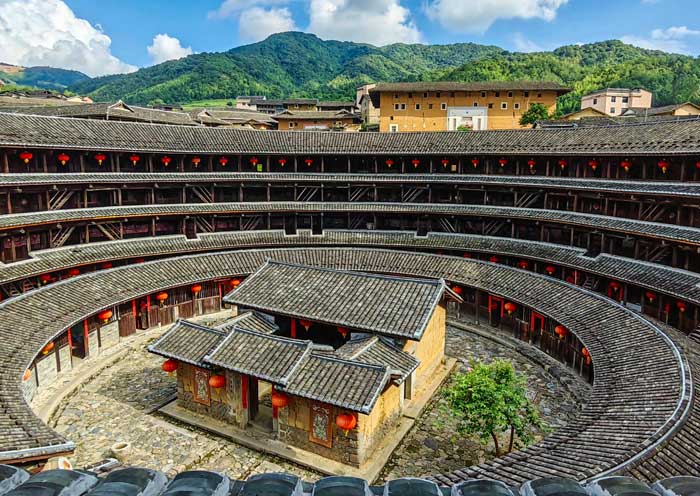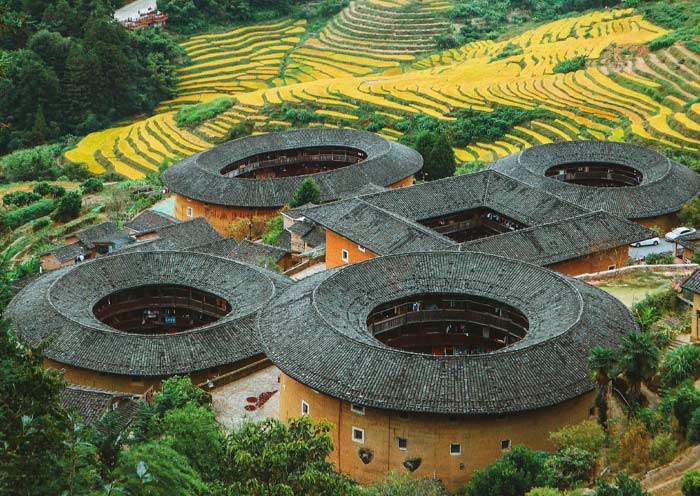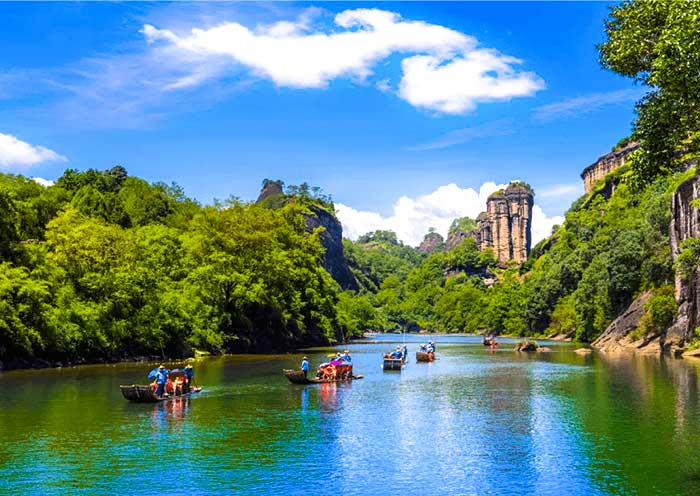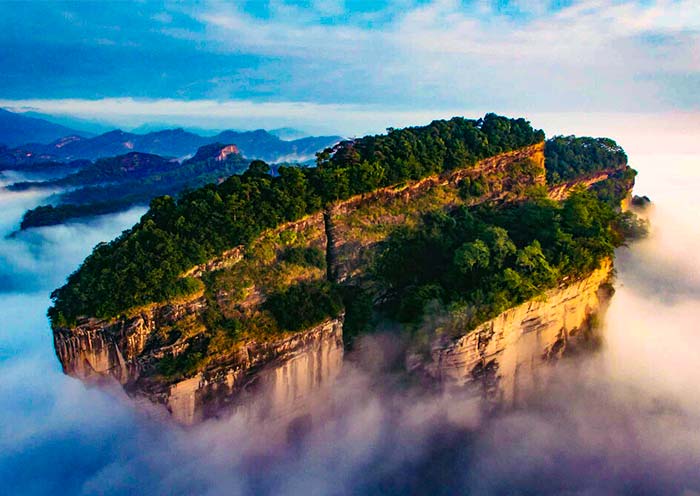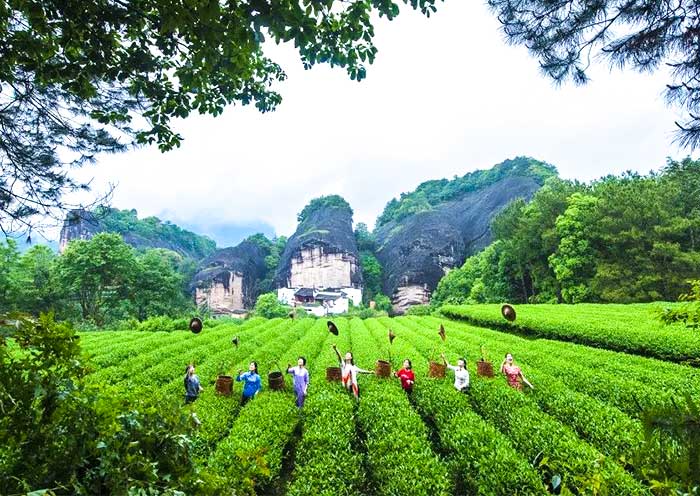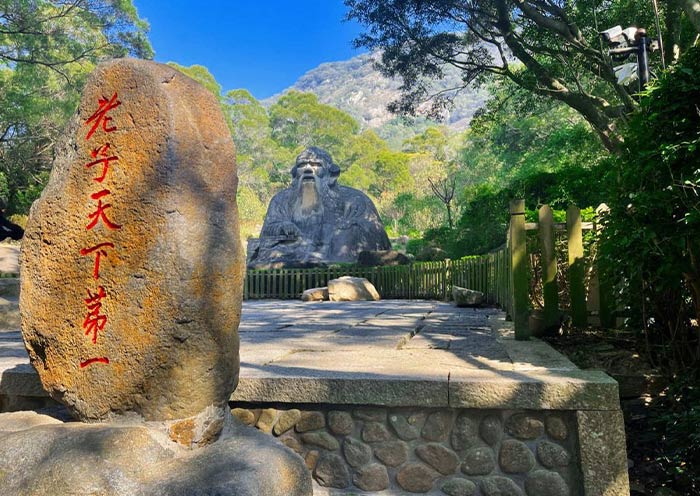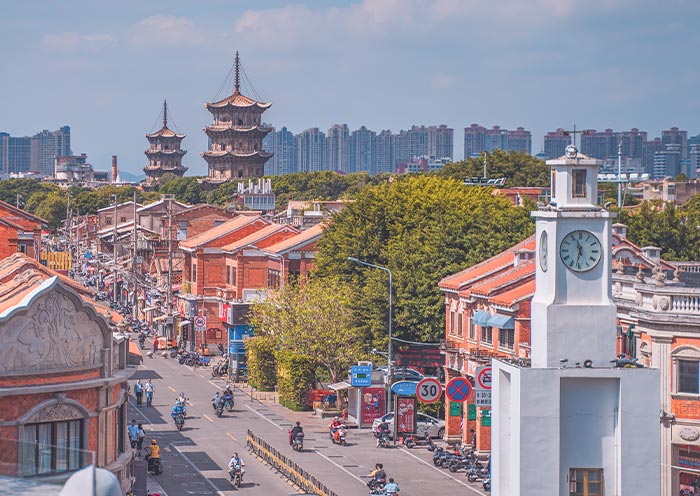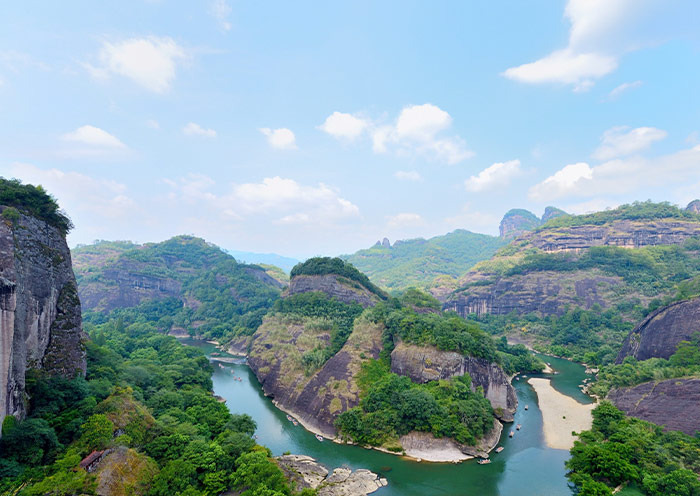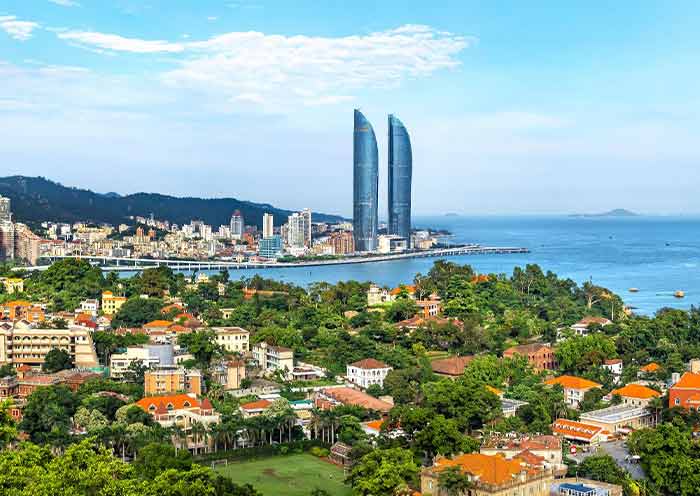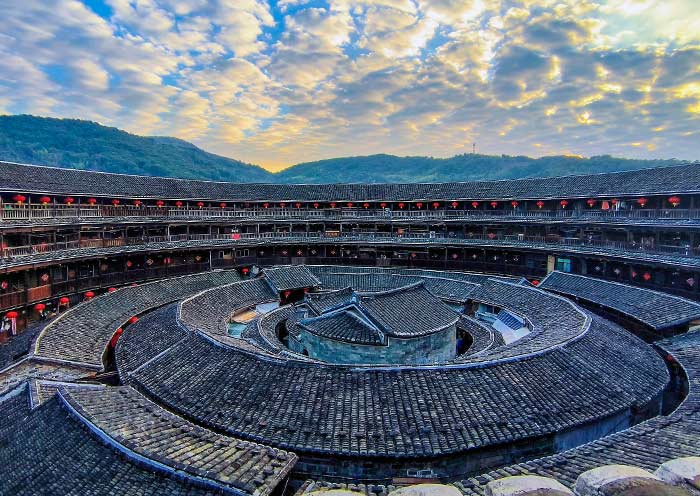Highly recommended for families seeking history and nature. The desert experience at Shapotou was unforgettable, and seeing the massive Western Xia Tombs gave us a real history lesson. The highlight was tasting the excellent wine at Xige Winery—a pleasant surprise in China's west! The tour was well-organized, and the guide and driver were exceptional, ensuring a smooth and enjoyable journey.
Fujian Quanzhou Tour - Best China Quanzhou Tours 2026
Why China Fujian Quanzhou Tour? Located on the southeast coast of Fujian province, Quanzhou was the largest port in Asia during the Song (960-1279) and Yuan (1271-1368) dynasties. Take our China Quanzhou Tours, you can gain a better understanding of why Quanzhou is famous as the Museum of World Religions and why Zaiton (Zayton), the old name of Quanzhou, was renowned outside of China. Hailed as "The City of Light" by Jacob D'Ancona and marked by Marco Polo as "The Most Prosperous City in the World," Quanzhou was the starting point of the Maritime Silk Road, which facilitated trade links and cultural exchanges with nearly 100 countries and regions. With a China Quanzhou tour, you will see Foreign traders also brought their beliefs, making Quanzhou a city where you can witness the peaceful coexistence of Taoism, Buddhism, Islam, Catholicism, Hinduism, Christianity, Manichaeism, and Judaism.
As the hometown of overseas Chinese, Quanzhou is also a top destination for people of Chinese origin to reconnect with their ancestral roots. Take a Quanzhou tour to immerse yourself in the local Hokkien culture by experiencing Minnan architecture, savoring delicious Minnan food, and enjoying local Hokkien songs like "Put in the Effort, You Will Win" (爱拼才会赢). As the 56th World Heritage Site of China and a history of over 1,000 years, Quanzhou is a must-visit city for you to learn more about China and its culture.
How to plan your Fujian Quanzhou Tours?
1 Day Quanzhou Tour From Xiamen: Follow Marco Polo & Explore The City of Light
Visit: Kaiyuan Temple, West Street, Zhongshan Road, Quanzhou Confucian Temple, Tumen Street, Qingjing Mosque, Guandi Temple, Mazu Temple, Luoyang Bridge (optional 1) or Xunpu Village (optional 2)
2 Days Quanzhou In-depth Tour: Back to Zayton - Starting Point of The Maritime Silk Road
Visit: Kaiyuan Temple, West Street, Zhongshan Road, Quanzhou Confucian Temple, Tumen Street, Qingjing Mosque, Guandi Temple, Mazu Temple, Luoyang Bridge (optional), Qingyuan Mountain, Quanzhou Maritime Museum, Holy Tombs (optional), Xunpu Village
Extend Fujian Quanzhou Tours with Other Destinations in China:
You can extend your Quanzhou Tour to other destinations in Fujian such as Xiamen, Hakka Tulou, Wuyishan Mountain, or Xiapu. For a China Quanzhou Tour along with Shanghai, Xian, Beijing, the Greater Bay Area, or Tibet, contact us to customize it.
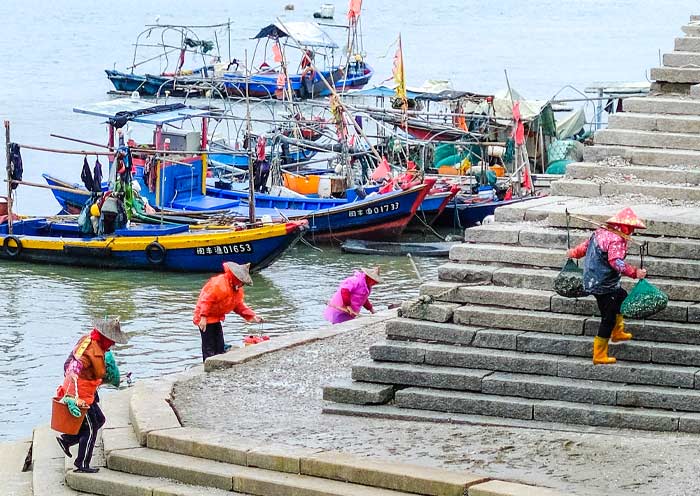
"Excellent Tour, best experience"
"A unique experience despite a difficult context thanks
to an experience team of organisers"
- 2 Best Fujian Quanzhou Tours
- 8 Recommended Fujian Tour Packages
- Articles & Planning
2 Best Fujian Quanzhou Tours
Immerse yourself in China's world heritage site of Quanzhou with a 1-day Quanzhou Tour from Xiamen and a 2-day Quanzhou In-depth Tour. Besides our 2 Best Fujian Quanzhou Tours, you can enjoy more Fujian tours, exploring the wonders of Quanzhou, Xiamen, Tulou, and Xiapu. Tailor your China Quanzhou tour to your preferences and discover the captivating highlights of Fujian at your own pace! Have fun in Quanzhou of China.
8 Recommended Fujian Tour Packages
Refreshing Fujian (清新福建), explore the Beauty of Fujian with memorable Fujian Tours to Xiamen, Tulou, Wuyishan, Quanzhou, or Xiapu. You will discover the coastal charm of Xiamen city, the amazing world cultural heritage site of Fujian Tulou, the majestic landscapes of Mt. Wuyishan (world natural and cultural heritage site), the historic city of Quanzhou (world cultural heritage site), or the mesmerizing beauty of Xiapu (photographer's heaven). Immerse yourself in the rich culture and natural wonders of Fujian with our expertly crafted tours. Book your China Fujian tour today and have an unforgettable journey through these remarkable destinations.
Quanzhou Tours Planning & Useful Articles
Quanzhou Tours FAQs - Plan Your Quanzhou Tours Worry-Free
-
 1. Why is Quanzhou named Zaiton?
1. Why is Quanzhou named Zaiton?
Quanzhou of Fujian province is believed to be named Zaiton due to its pronunciation in Arabic and Persian languages during the medieval period. The name Zaiton is derived from the Arabic word "Zaytun," which means "Erythrina tree." It is said that the city was called Zaiton due to the abundance of Erythrina trees in the region during ancient times. Over time, the name Zaiton evolved into Quanzhou of China as the city's name in Chinese.
-
 2. What did Marco Polo say about Quanzhou?
2. What did Marco Polo say about Quanzhou?
Marco Polo, the famous Venetian explorer, visited Quanzhou of Fujian Province during the 13th century and described it as "The Most Prosperous City in the World." In his travel accounts, Marco Polo praised China Quanzhou for its bustling trade, extensive markets, and wealth. He marveled at the city's vibrant economy, diverse population, and the grandeur of its temples and palaces. Marco Polo's account of Quanzhou contributed to its reputation as a prosperous and cosmopolitan trading hub during that era.
-
 3. What is Quanzhou best known for?
3. What is Quanzhou best known for?
Quanzhou of Fujian provinceis best known for its historical role in maritime trade, its cultural diversity and religious tolerance, its architectural heritage, and its connection to the Maritime Silk Road. Here are several aspects about Quanzhou:
1). Maritime Trade: Quanzhou was the largest port in Asia during the Song (960-1279) and Yuan (1271-1368) dynasties. It played a significant role as the starting point of the Maritime Silk Road, facilitating trade and cultural exchange with regions such as Southeast Asia , Persia, Arabia, and Africa.
2). World Religions: Quanzhou of China is often referred to as the "Museum of World Religions" due to the coexistence of various religions within the city. Taoism, Buddhism, Islam, Catholicism, Hinduism, Christianity, Manichaeism, and Judaism have all left their mark on Quanzhou's cultural landscape.
3). Historical and Cultural Heritage: Quanzhou boasts a rich historical and cultural heritage. The city preserves ancient architecture, including temples, mosques, pagodas, and ancestral halls. It is renowned for its stone-carved cultural relics, such as inscriptions and statues.
4). Ancestral Roots: Quanzhou is considered the hometown of many overseas Chinese, and it holds significance for people of Chinese origin seeking to reconnect with their ancestral roots. Many people visit Quanzhou to explore their family history and genealogy.
5). Hokkien Culture: Quanzhou is a hub of Hokkien (Minnan) culture. It is known for its distinctive Hokkien architecture, which features elegant courtyard houses, temples, and ancestral halls. The city is also famous for its delicious Hokkien cuisine, known for its fresh seafood and unique flavors.
-
 4. What religions can be found in Quanzhou?
4. What religions can be found in Quanzhou?
Quanzhou of Fujian province is known for its religious diversity and the coexistence of various faiths. The coexistence of these religions in China Quanzhou is a testament to the city's cultural openness and religious tolerance throughout its history. The city is home to several religions, including:
1). Taoism: Quanzhou has a significant presence of Taoist temples and practitioners. Taoism is an indigenous Chinese religion that emphasizes harmony with nature and the pursuit of spiritual enlightenment.
2). Buddhism: Buddhism has a long history in Quanzhou of China, and there are numerous Buddhist temples and monasteries in the city. Buddhist teachings and practices have influenced the local culture and traditions.
3). Islam: Quanzhou has a sizable Muslim population, and there are several mosques in the city. Islam was introduced to Quanzhou during the Tang Dynasty and has since become an integral part of the city's religious landscape.
4). Catholicism: Quanzhou has a Catholic community with several Catholic churches and institutions. Catholicism was introduced to Quanzhou by foreign missionaries during the Yuan Dynasty and has a long history in the city.
5). Hinduism: Quanzhou has a small Hindu community, primarily consisting of overseas Indian residents. Hindu temples exist in the city, serving the religious needs of the local Hindu population.
6). Christianity: Quanzhou has a Christian presence, including both Protestant and Catholic denominations. Christian churches can be found in the city, and the faith has followers among the local population.
7). Manichaeism and Judaism: Historically, Quanzhou had communities practicing Manichaeism and Judaism. While their presence is not as prominent today, traces of their influence can still be found in the city's history and cultural heritage.
-
 5. How do you get to Quanzhou? Are there an airport and high-speed train to Quanzhou?
5. How do you get to Quanzhou? Are there an airport and high-speed train to Quanzhou?
Quanzhou of Fujian province is well-connected and can be reached by various modes of transportation. Here's how you can get to Quanzhou of China:
1). Get to Quanzhou By Air: Quanzhou Jinjiang Airport (JJN) serves as the primary airport for the city. It offers domestic and international flights, making it convenient for travelers to reach China Quanzhou by air. From the airport, you can take a taxi or use public transportation to reach your destination within the city.
2). Get to Quanzhou By High Speed Train: Quanzhou has a railway station called Quanzhou Railway Station, which is connected to the national rail network. Bullet trains operate to and from Quanzhou, providing convenient access from major cities in China, including Beijing, Shanghai, Guangzhou (Guangdong province), and Xiamen. The railway station is located in the downtown area, making it easily accessible for travelers.
Once you arrive in Quanzhou, you can use local transportation options such as taxis, buses, and local minibusses to get around the city and explore its attractions.
-
 6. Why is Quanzhou named the City of Light?
6. Why is Quanzhou named the City of Light?
Quanzhou of Fujian province is often referred to as the "City of Light" due to its historical significance as a prosperous trading port that attracted merchants from around the world. The name reflects the city's vibrant economic activity and the cultural diversity resulting from international interactions.
During the Song (960-1279) and Yuan (1271-1368) dynasties, China Quanzhou flourished as a major center of maritime trade along the Maritime Silk Road. The city was a bustling hub of commerce, attracting merchants from different countries and regions. This thriving trade brought wealth, cultural exchange, and knowledge to Quanzhou, making it a beacon of prosperity and enlightenment.
Also, the answer can be found in Jacob d'Ancona's description in "The City of Light": "Because the streets are filled with so many oil lamps and torches, the city shines brilliantly at night. It can be seen from afar. For this reason, people call Quanzhou the City of Light."
-
 7. What is the Maritime Silk Road? Why was Quanzhou so important?
7. What is the Maritime Silk Road? Why was Quanzhou so important?
The Maritime Silk Road refers to a network of maritime trade routes that connected various regions and civilizations across the Indian Ocean and the South China Sea. It was an extension of the overland Silk Road and played a crucial role in promoting trade, cultural exchange, and diplomatic relations between different civilizations. As the starting point of Maritime Silk Road, China Quanzhou (Fujian Province) was important because of its location, developed port infrastructure, economic prosperity, cultural exchange, extensive trade networks, technological advancements, and religious heritage. It served as a crucial hub for trade, cultural exchange, and the diffusion of ideas along the Maritime Silk Road.
-
 8. Is Quanzhou worth a visit?
8. Is Quanzhou worth a visit?
Quanzhou of Fujian is worth visiting for its rich history, cultural heritage, architectural marvels, delicious cuisine, natural beauty, and warm hospitality. As the 56th World Heritage Site of China, Quanzhou is a popular tourist city for its glorious past and bright future. In Quanzhou tour, you will have the opportunity to visit the 22 world heritage sites in Quanzhou, such as Kaiyuan Temple, Quanzhou Confucian Temple (closed on Mondays), Qingjing Mosque (Qingjing Temple), Tianhou Temple (Mazu Temple), Deji Gate Site (opposite Tianhou Temple), Luoyang Bridge, Laojun Rock Statue (in Qingyuan Mountain), and the Islamic Mausoleum (Holy Tombs).
-
 9. Why is Quanzhou compared to Xian, the starting point of the Silk Road?
9. Why is Quanzhou compared to Xian, the starting point of the Silk Road?
Xian and Quanzhou of Fujian are compared due to their historical significance in the Silk Road. While Xian was the starting point of the overland Silk Road, China Quanzhou was the starting point of the Maritime Silk Road. Both cities facilitated trade, cultural exchange, and left lasting legacies in terms of historical sites, architecture, and the diffusion of ideas and cultures.
Latest Quanzhou Tours Reviews from Our Customers

Aisha
Malaysia
Destination(s): Ningxia
Date of Experience: Sep 02, 2025
Tour Customized by: Nicole
You May be Interested in This Tour: 5 Days Classic Ningxia Tour - Shapotou Desert, Yellow River & Lost Kingdoms

Emily Johnson
USA
Expert guides and seamless logistics made our trip truly exceptional. Highly recommended! The Tengger Desert's colorful lakes were a surreal highlight after an unforgettable night camping under Shapotou's starry sky. The history, wine, and off-roading created a perfect, diverse adventure.
Destination(s): Ningxia
Date of Experience: Oct 09, 2025
Tour Customized by: Anthony
You May be Interested in This Tour: 6 Days Ningxia Odyssey Tour: Desert Camping & Off-road to Colorful Lakes

Ryan Tan
Singapore
The perfect mix of history, wine tasting, and desert adventures, especially camping in Shapotou under the stars. Highlights included the stunning Western Xia Tombs and Xige Winery. Truly unique and well-organized—highly recommended!
Destination(s): Ningxia
Date of Experience: Jun 12, 2025
Tour Customized by: Danny
You May be Interested in This Tour: 6 Days Ningxia Wine Tour with Desert Camping in Shapotou
- United States (+1)
- Australia (+61)
- Singapore (+65)
- Malaysia (+60)
- Philippines (+63)
- Canada (+1)
- Italy (+39)
- Indonesia (+62)
- United Kingdom (+44)
- Spain (+34)
- Mexico (+52)
- Hong Kong (+852)
- Thailand (+66)
- United Arab Emirates (+971)
- New Zealand (+64)
- South Africa (+27)
- Germany (+49)
- Brazil (+55)
- India (+91)
- France (+33)
- Vietnam (+84)
- The Netherlands (+31)
- Saudi Arabia (+966)
- Ireland (+353)
- Argentina (+54)
- Switzerland (+41)
- Romania (+40)
- Pakistan (+92)
- Japan (+81)
- Portugal (+351)
- Bangladesh (+880)
- South Korea (+82)
- Puerto Rico (+1)
- Türkiye (+90)
- China (+86)
- Belgium (+32)
- Qatar (+974)
- Greece (+30)
- Taiwan (+886)
- Austria (+43)
- Poland (+48)
- Israel (+972)
- Chile (+56)
- Sri Lanka (+94)
- Nigeria (+234)
- Peru (+51)
- Colombia (+57)
- Hungary (+36)
- Nepal (+977)
- Denmark (+45)
- Bulgaria (+359)
- Norway (+47)
- Slovenia (+383)
- Sweden (+46)
- Kuwait (+965)
- Costa Rica (+506)
- Ecuador (+593)
- Venezuela (+58)
- Malta (+356)
- Croatia (+385)
- Tunisia (+216)
- Czechia (+420)
- Mongolia (+976)
- Bahrain (+973)
- Mauritius (+230)
- Papua New Guinea (+675)
- Cambodia (+855)
- Dominican Republic (+1)
- Luxembourg (+352)
- Finland (+358)
- Guatemala (+502)
- Myanmar (+95)
- Maldives (+960)
- Slovakia (+421)
- Laos (+856)
- Serbia (+381)
- Brunei (+673)
- Oman (+968)
- Macao (+853)
- Panama (+507)
- Morocco (+212)
- Jordan (+962)
- Georgia (+995)
- Fiji (+679)
- Bolivia (+591)
- Lithuania (+370)
- Bahamas (+1)
- Cyprus (+357)
- Latvia (+371)
- Bhutan (+975)
- Iraq (+964)
- Iran (+98)
- Kenya (+254)
- Jamaica (+1)
- Zimbabwe (+263)
- Azerbaijan (+994)
- Uruguay (+598)
- Estonia (+372)
- Andorra (+376)
- Cameroon (+237)
- Ghana (+233)
- Kazakhstan (+7)
- Nicaragua (+505)
- Egypt (+20)
- Russia (+7)
- Albania (+355)
- Réunion (+262)
- Montenegro (+382)
- Algeria (+213)
- Afghanistan (+93)
- Martinique (+596)
- Uganda (+256)
- Honduras (+504)
- North Macedonia (+389)
- Trinidad and Tobago (+1)
- Suriname (+597)
- Antigua and Barbuda (+1)
- Zambia (+260)
- Ukraine (+380)
- Armenia (+374)
- Barbados (+1)
- Belarus (+375)
- Palestine (+970)
- Lesotho (+266)
- Moldova (+373)
- Ethiopia (+251)
- French Polynesia (+689)
- Gambia (+220)
- Guam (+1)
- Gibraltar (+350)
- Isle of Man (+44)
- New Caledonia (+687)
- El Salvador (+503)
- Comoros (+269)
- Seychelles (+248)
- Chad (+235)
- Samoa (+685)
- Cook Islands (+682)
- Palau (+680)
- Paraguay (+595)
- DR Congo (+243)
- Solomon Islands (+677)

